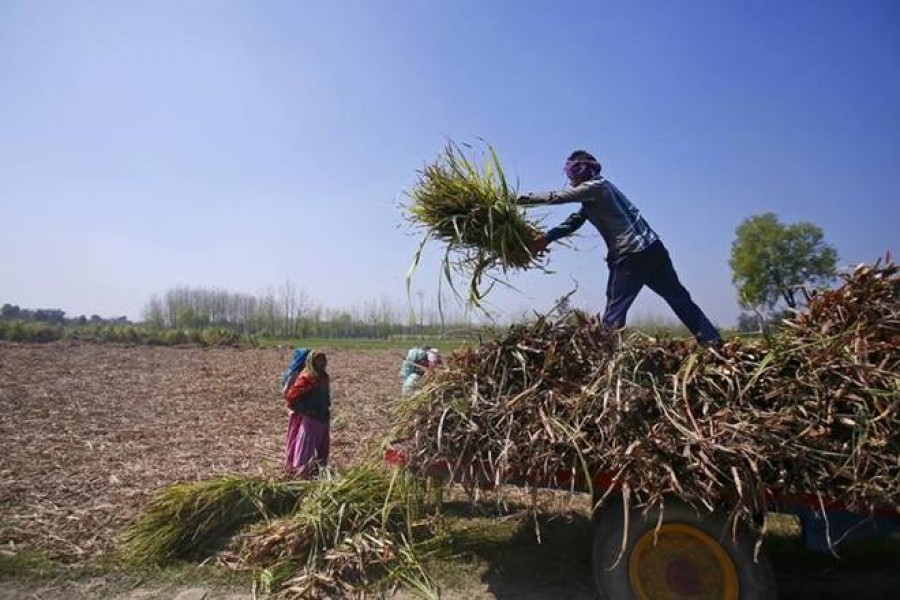Bangladesh has baffled pundits in the academic arena, particularly economists, by the progress it has made on the socio-economic fronts. One common perception is that good governance and transparency ensure economic growth and social progress. When these two prerequisites are undermined, production in agriculture and manufacturing sector suffers. Bangladesh is not particularly known for good governance and corruption-free service delivery and yet the country has surprised the world by its pace of progress on most of its key fronts.
How could it do this -and also maintain the trend -proves baffling to scholars in social science and economics the world over. The buzz words now are development paradox. What it means is that the experts cannot rationally explain or justify the country's journey on the road to socio-economic development. Some economists complain that the country has failed to realise its demographic dividends. This is true only partly. In a country crammed with a population size of 160 million, where mineral and natural resources are next to nothing, it is the people who have made the miracle possible.
How? The country's greatest achievement is in the area of its crop production. Untiring studies, research and experiment by some dedicated agricultural scientists have been responsible for turning the country around from the point where it was perpetually deficient in food with just 70 million people. Ravaged by floods, storms, hurricanes and epidemics, more often than not, the country was considered a 'basket case' -an infamous epithet with which an influential American diplomat stigmatised the country. Bangladesh has been able to give an appropriate reply to his reproach by now. Had he been alive today, he would have to swallow his own words.
However, the country has not done what it has done out of grudge against anyone, it had to move forward in its own interest. True, the country's education, culture and living standard have not transformed radically in order to achieve a balanced development. But still its economic growth took off by way of agriculture. Introduction of a series of paddy varieties and farmers' positive response to it had a meeting point. For the first time, village women also started actively participating in cultivation. Here is a different kind of cultivation practice and the additional women labour added a significant share to the input. At its highest point, women now manage agricultural farms producing vegetables and flowers, orchards of specially developed fruits -some of those exotic and fish farms.
Through such endeavours, diversification of crops has taken a big leap forward. Self initiative has been responsible initially for advancing the financial cause. Then others also felt inspired and discovered that there was no reason why they should remain poor. More and more people started looking for options other than the traditional. No wonder that a few educated youths have returned to their villages in order to develop a cattle farm or, as the latest case is, turkey farms. Entrepreneurship of the most innovative type has even pushed a couple to raise a garden of medicinal plants somewhere in Faridpur. In the hills and elsewhere farmers have developed orchards of oranges, mosambi (sweet lime), dragon fruits and other exotic fruits. Cultivation of strawberries is yet another step in that direction.
If farming has witnessed a boom, the rural youths have also looked for employment abroad. Notwithstanding some of the tragic and inhuman incidents involving their journey and recruitment abroad, many have been employed legally and their remittance has been the second biggest source of earning foreign currency after the readymade garments. The money sent has transformed the families in many respects. If the boys have gone abroad with such employment, girls have found works in city's garments factories. There has been a power shift in villages with the little educated young population sending home money earned either in cities or in a foreign country.
Sure enough, all this could happen because of two phenomena. One is the new electronic gadget - cell phone and the other is the construction of village roads connecting those with the upazila, district or the highway to the capital. The connectivity was enhanced by leaps and bounds and the population from sleepy villages now became aware of their potential to be equal to the challenges facing them. Sure enough, both the government and the non-government organisations (NGOs) joined hands to build up the network of roads. Then the NGOs also helped people with loans which at least for a few people were helpful in starting a small business or other enterprise.
The urban centres deal with big money -some of it is earned, some of it is not. But if the villages did not manage themselves the way they did, Bangladesh would never have reached the stage of development it has. The government's immunisation programme has drastically reduced child mortality, but unless the NGOs went ahead with the programme of tube-wells, sealed latrines and sanitation, the fight against maternal and child mortality would not have been so successful. Inequitable wealth distribution has been creating a class of super rich who gain their wealth by means fair or foul. Governance on this count has done a disservice to its name. Against such dubious wealth acquisition, the villages have proved how honest labour can change people's lot. There lies a plausible answer to the development paradox.


